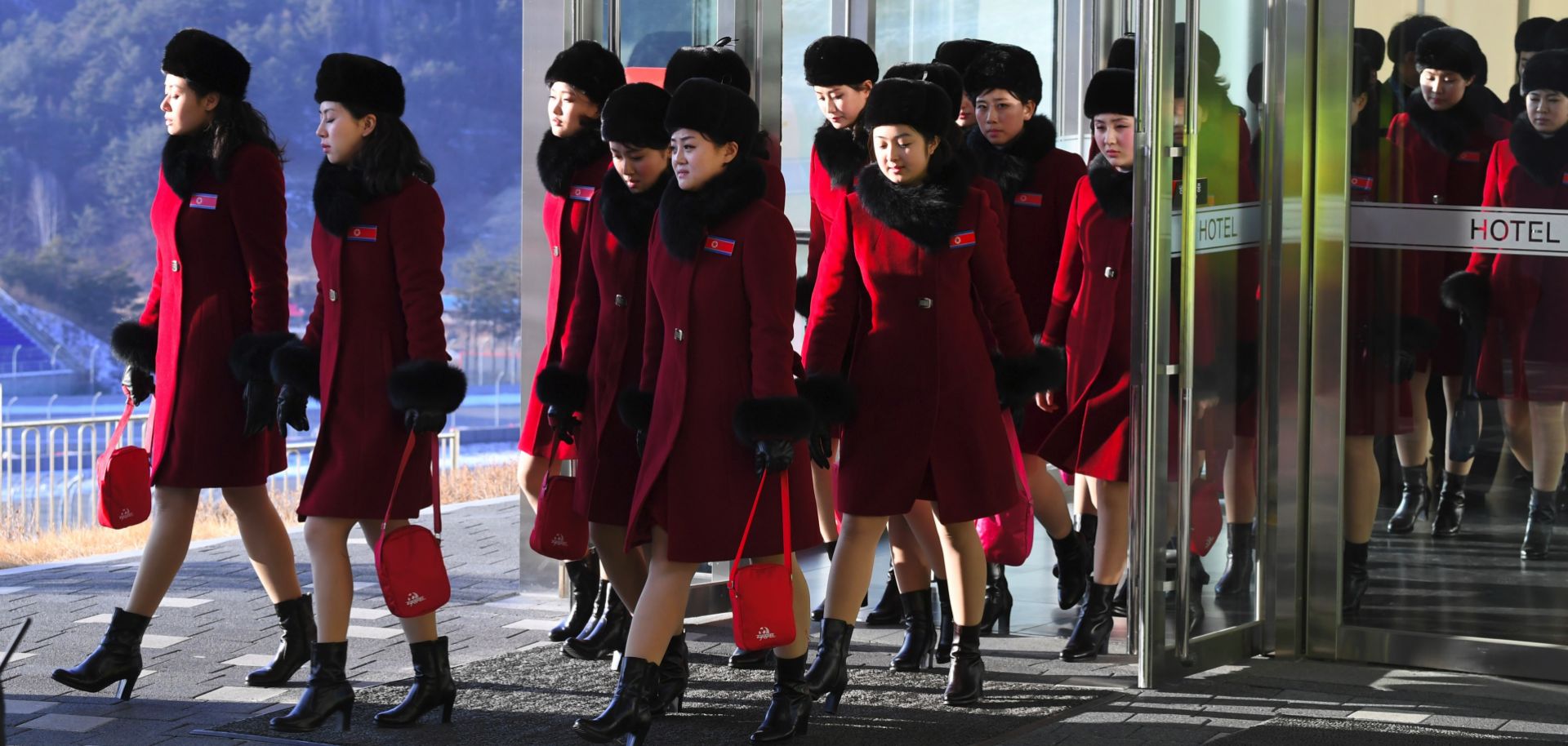GUIDANCE
The Political Games at the 2018 Winter Olympics
Feb 8, 2018 | 18:10 GMT

North Korean cheerleaders walk to their accommodations in Inje, north of Pyeongchang, on Feb. 7, 2018, ahead of the Pyeongchang Winter Olympic Games.
(JUNG YEON JE/AFP/Getty Images)
Highlights
- The 2018 Winter Olympics will bring a pause in hostile rhetoric between the United States and North Korea, but not an end to their dispute.
- Despite the goodwill on display in PyeongChang, there is still little room for compromise given the positions the two sides have taken.
- Joint military drills between the U.S. and South Korean militaries after the games will ultimately provide the clearest signal of what is to come.
Subscribe Now
SubscribeAlready have an account?
